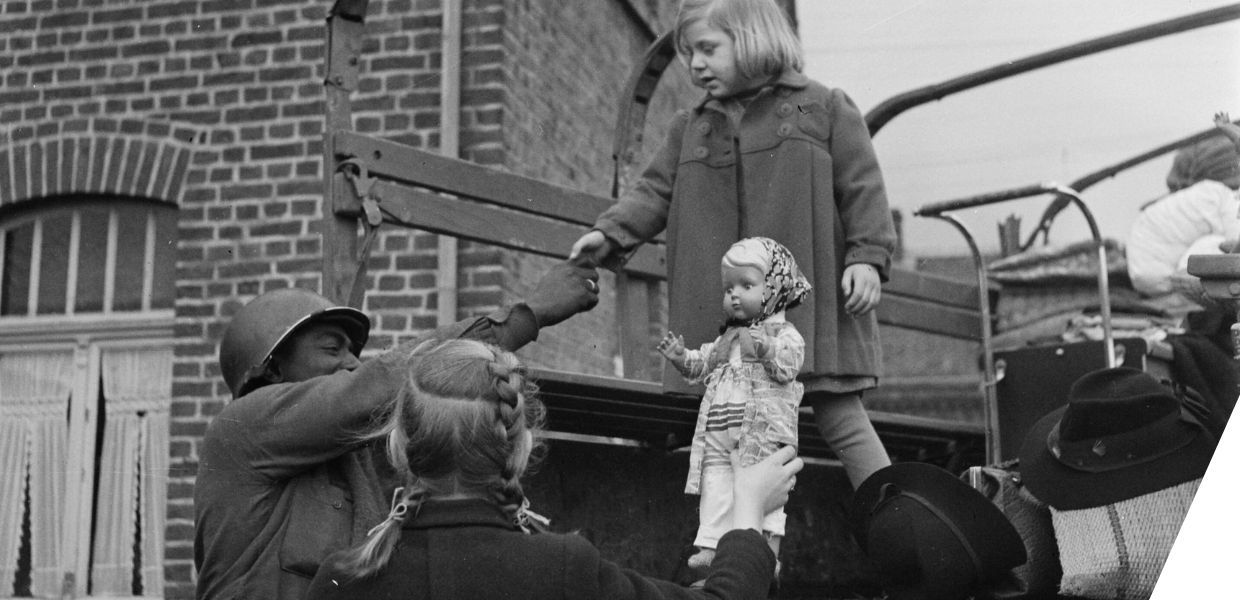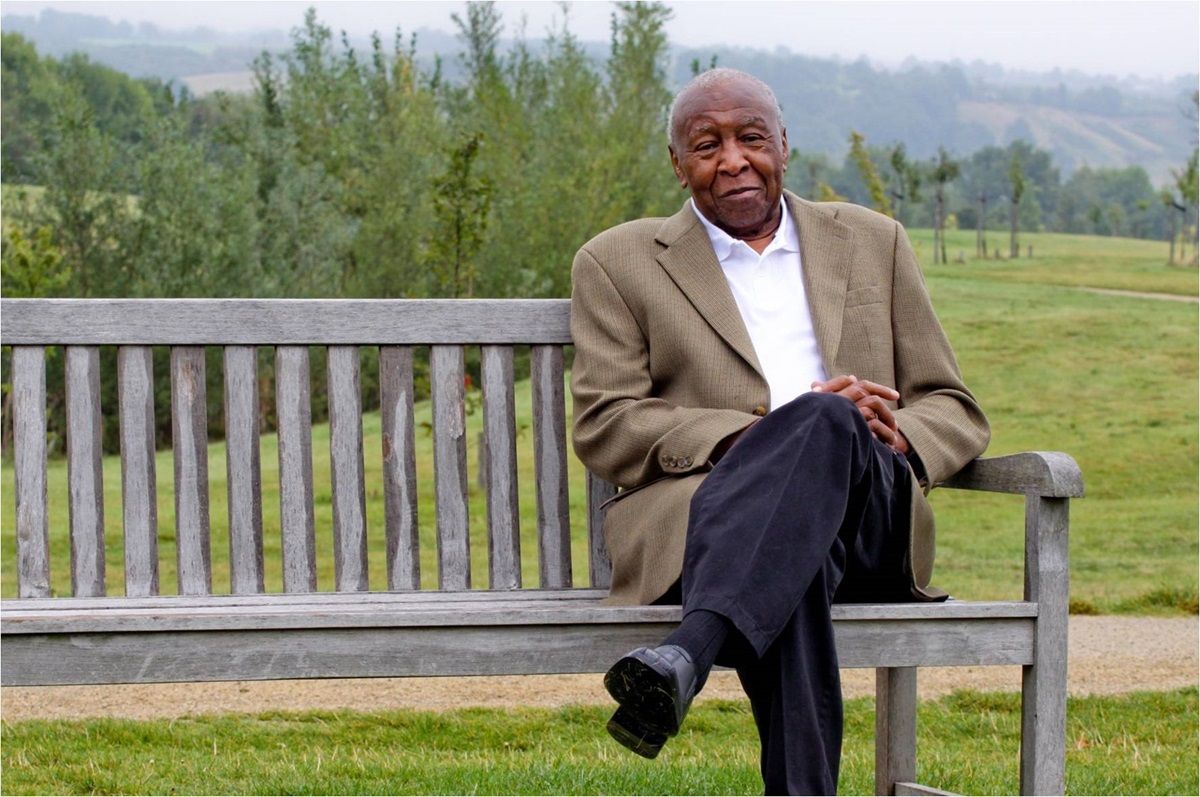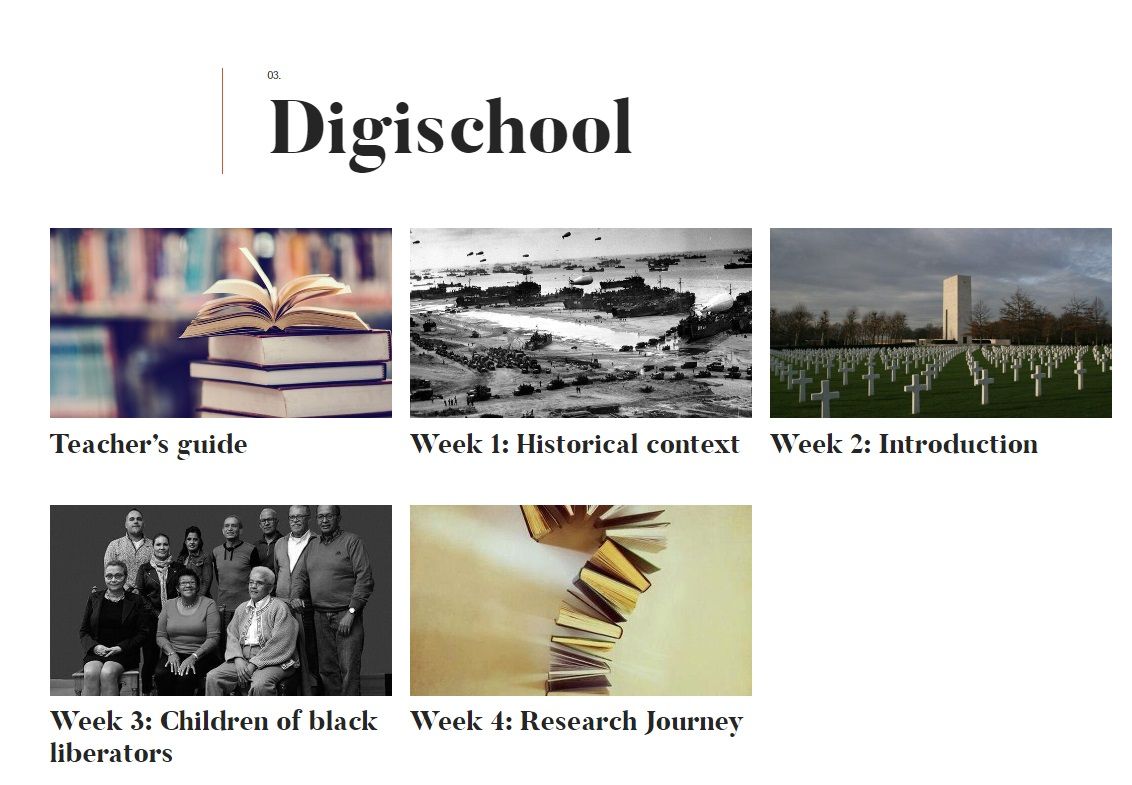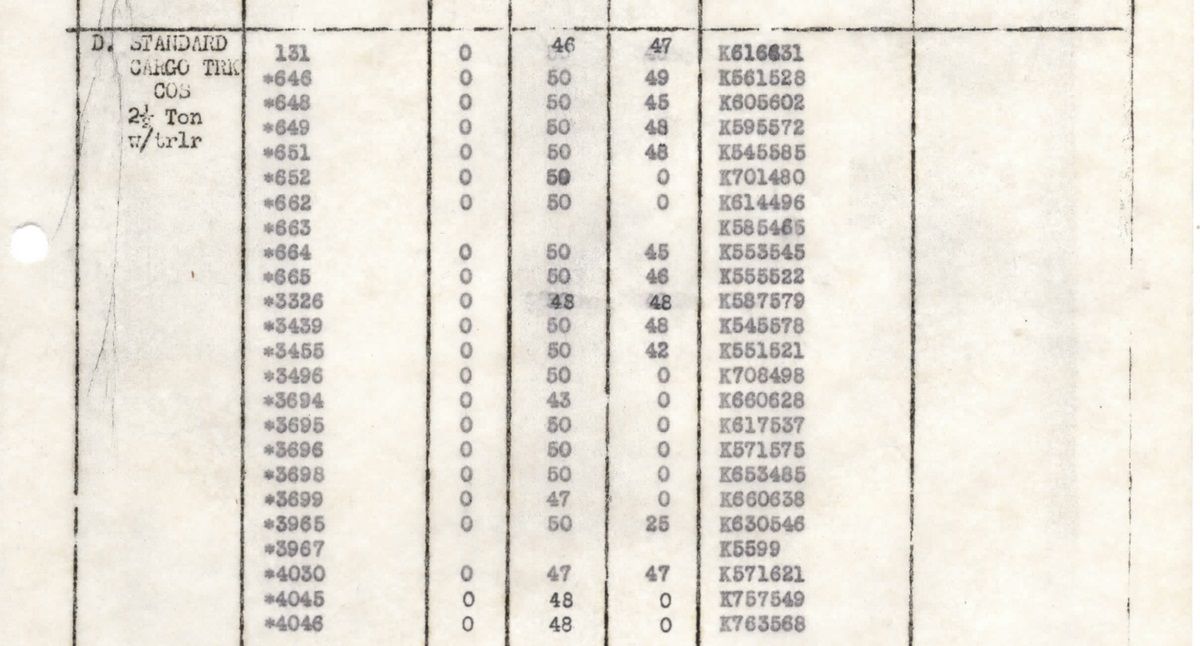‘Jefferson was very reluctant to talk to us at first,’ says Sebastiaan. ‘He had worked at the cemetery for a long time and had locked those painful memories away. But he thought the story should be told, not just for himself but for others as well. “People should know”, he said’. He started to work with Mieke to write down his memories and their book From Alabama to Margraten – memories of former gravedigger Jefferson Wiggins was published in 2014, a year after he passed away.
The publication of Jefferson’s book awakened memories and aroused interest from Dutch children of African American soldiers, who felt that their experiences had not been publicly acknowledged before. Mieke documented their stories in a new book, and from their testimonies, the Black Liberators in the Netherlands website was born.
The website wants to change the fact that Black Americans haven’t been represented in the overall historical narrative about World War II. It now contains the stories of 19 different people, those that served in the US army and those who are the children of African American soldiers. ‘A lot of oral history has been collected,’ says Sebastiaan. ‘However, we also want to find out more about the broader history of that time - how many soldiers, what were they doing, where were they stationed and so on.’
Black Liberators for education
The Black Liberators website includes a ‘Digischool’ - a four-week educational programme for 14 - 15 year olds, with a teacher’s guide, texts, videos and assignments.
The purpose of this course, Sebastiaan tells us, is ‘to counteract all the mainstream narratives, movies and so on, that portray World War II as white. We want to push for more inclusive history in schools, and everywhere. Partly, it’s about finally acknowledging what others have been doing, but it’s also powerful in terms of self-identity, being inspired by role models who look like you.’
And it’s not just for use in schools. The Digischool is being used by a Black Liberators board member to train staff on inclusivity and diversity in the Dutch armed forces, particularly in the military police, to show that Black people have been part of the military for a long time and contributed significantly.
‘We’ve experienced that some people express sympathy, they feel it’s a wrongdoing that Black soldiers were treated differently and that these stories haven’t been told before,’ says Sebastiaan. ‘Simultaneously, they fail to understand or even outright deny how (the long history of) racism continues to impact society to this day. So, we see that learning about history doesn’t always inform views today. We hope that our Digischool course will help to change that.’





